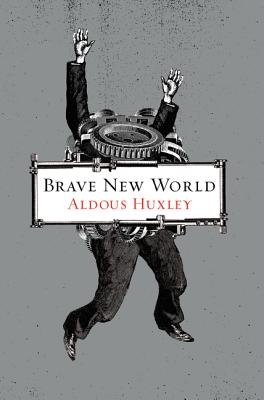When the teacher has to sit down and warn the class before they read a book, you know it’s going to be something. Not necessarily good, more necessarily bad, but certainly, certainly something.
AP Literature is a class all about books, and many classic books (such as To Kill a Mockingbird and Romeo and Juliet) that we read in years past came with warning labels. Thus, it definitely came as a shock that we were able to go through five entire novels without seeing a single trace of a content warning. After finishing Wuthering Heights, we started into the short dystopian unit with Fahrenheit 451 (***). I foolishly believed that since we still had one more dystopian novel to read, we’d be safe for a little while longer—dystopian novels tend to be violent and disturbing, yes, but they’re never much worse than that, and F451 didn’t come with a warning, so…
I’m sure you can imagine my disappointment when our next novel did, in fact, break the no-content-warning streak. But can you imagine my surprise when this warning was for… “lascivious behavior”? What sort of dystopian novel has that?

Brave New World certainly, certainly does. This novel (in which the plot is essentially just a spotlight on the mores of the setting) is set in a postmodern society in which morals seem to have turned on their head: lasciviousness is the encouraged norm, infants are developed in test tubes and specially designed for their jobs in life, and viviparous births and monogamy are seen as the highest of taboos. It’s commonly known that BNR is a satire mockery of society’s turn towards worshiping technology, and it means to warn of future horrors that this warship could cause. This seems cut and dry, so what more is there to talk about?
A lot, actually. Two blog posts ago, I argued that the most important thing to take away from a novel is what you personally make of it. To me, Brave New World is as much of a warning sign to us as it is a case study on culture. We, the outside observers, will obviously be disturbed and disgusted by the written state of future society. However, as is evident from the “savage reservations” touched upon in the novel, those in BNR‘s society are also disturbed and disgusted by us, the past. In both cases, this is because the society or culture we grow up in shapes our perceptions of what right is and what wrong is through the instillment of what I now know to call “commonplaces” (even when harmless details are labeled as ‘wrong’ and harmful standards are labeled as ‘right’).
It’s because of these revelations that Brave New World actually holds a special place in my heart. I used this as the topic of one of my Schreyer’s application essays, and while I can’t pinpoint my acceptance entirely on one essay, I do believe that this was the one I poured the most heart into.
(***) A note. F451 ended up being my favorite book of the year, and I absolutely loved reading it. I so recommend it! However, I don’t believe I would have anything new to contribute to the conversations about it (at least not in 500 words), and I think it’s better to go in blind.
I found your blog to be very well-written, and to be full of good commentary about the novel. When I read this book, it was not for a class, so I got no warning beforehand, so I wasn’t sure what to expect. I think this novel was definitely a good choice to use for your Schryeres application. As to the book cover, my interpretation was that it was representative of how to cogs of that society worked was suffocating man, and not letting him breathe, and restricting him so heavily that he is no longer even human. Overall good job, I really enjoy the topic and writing style of this blog.